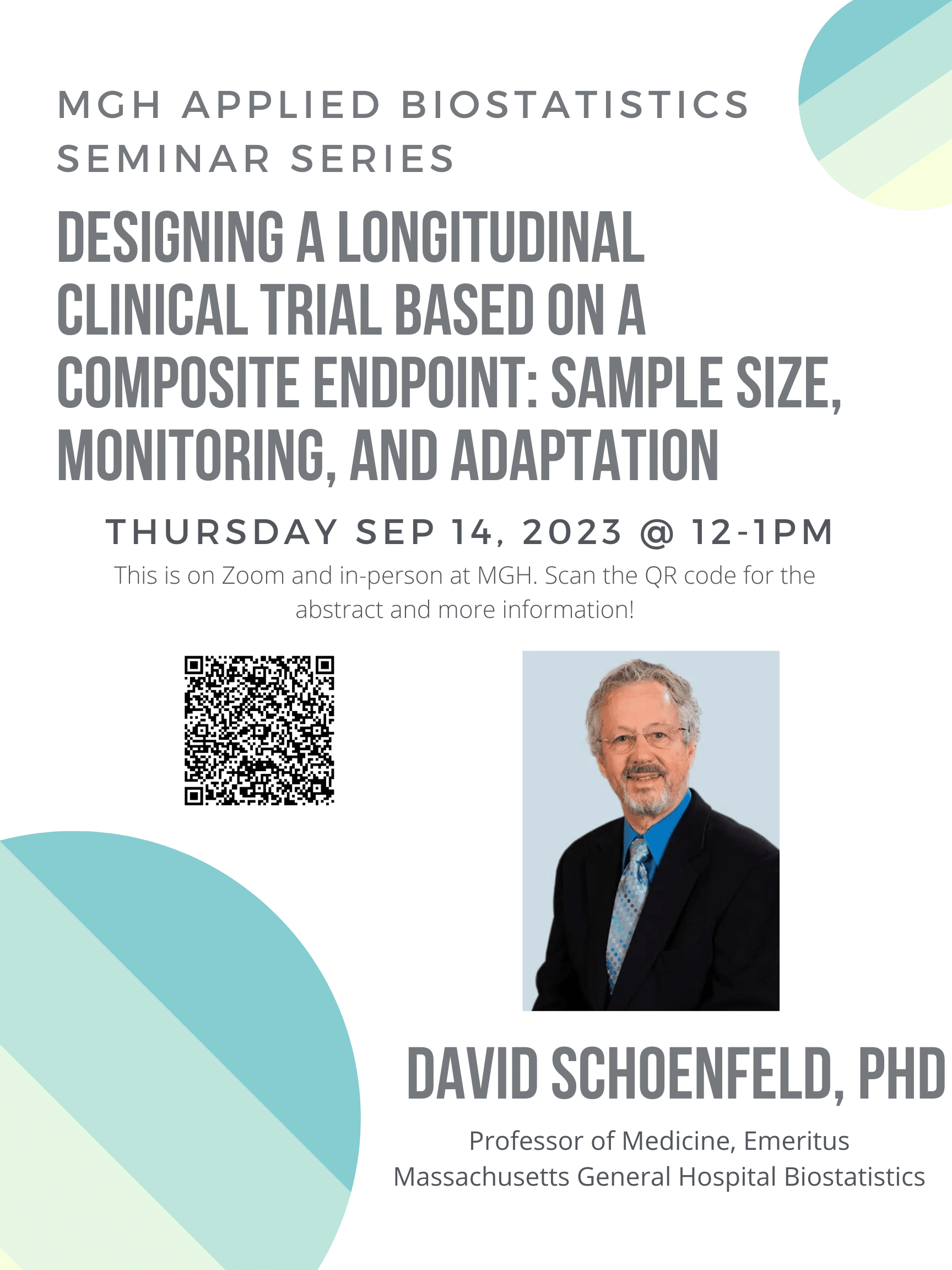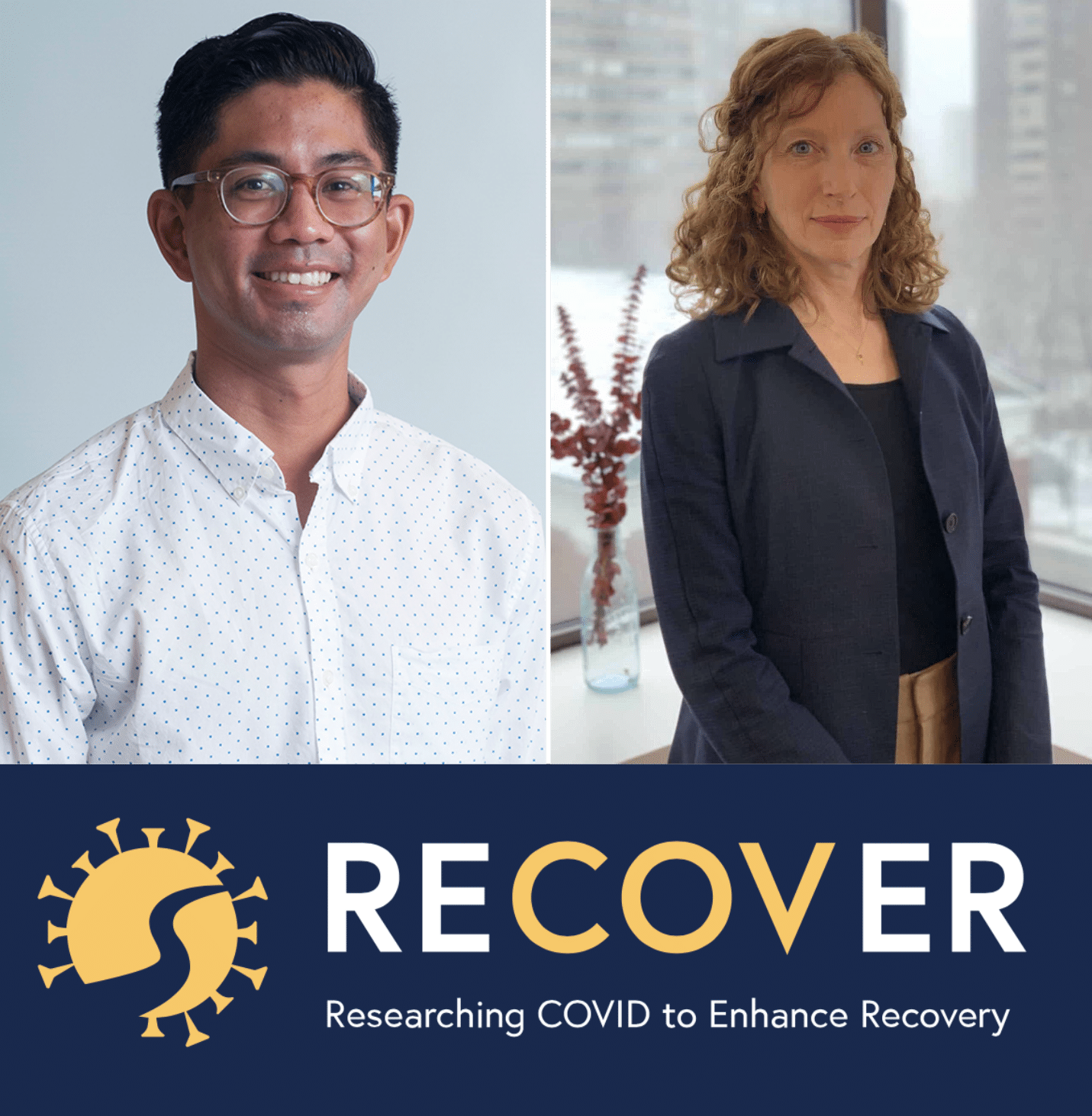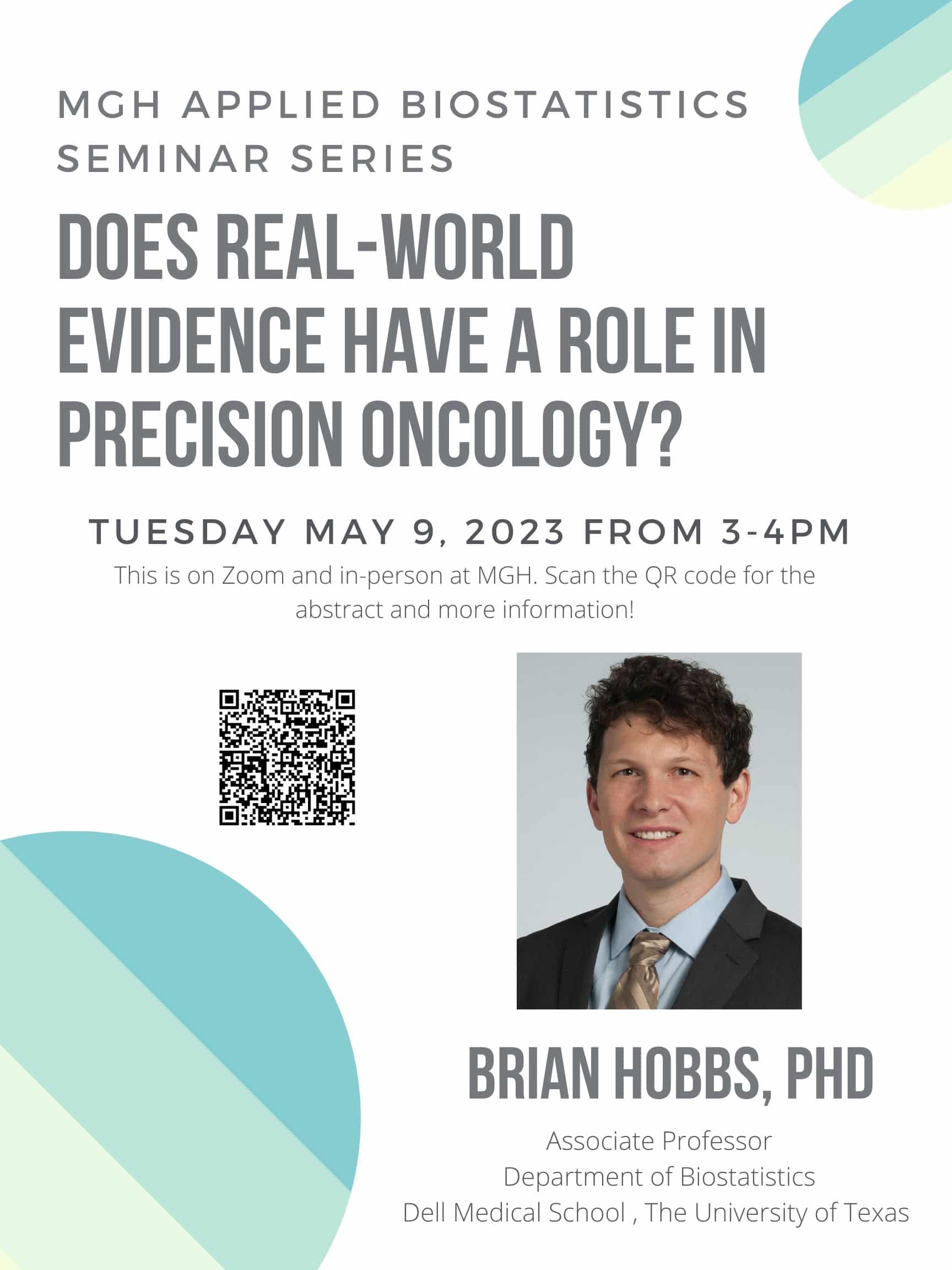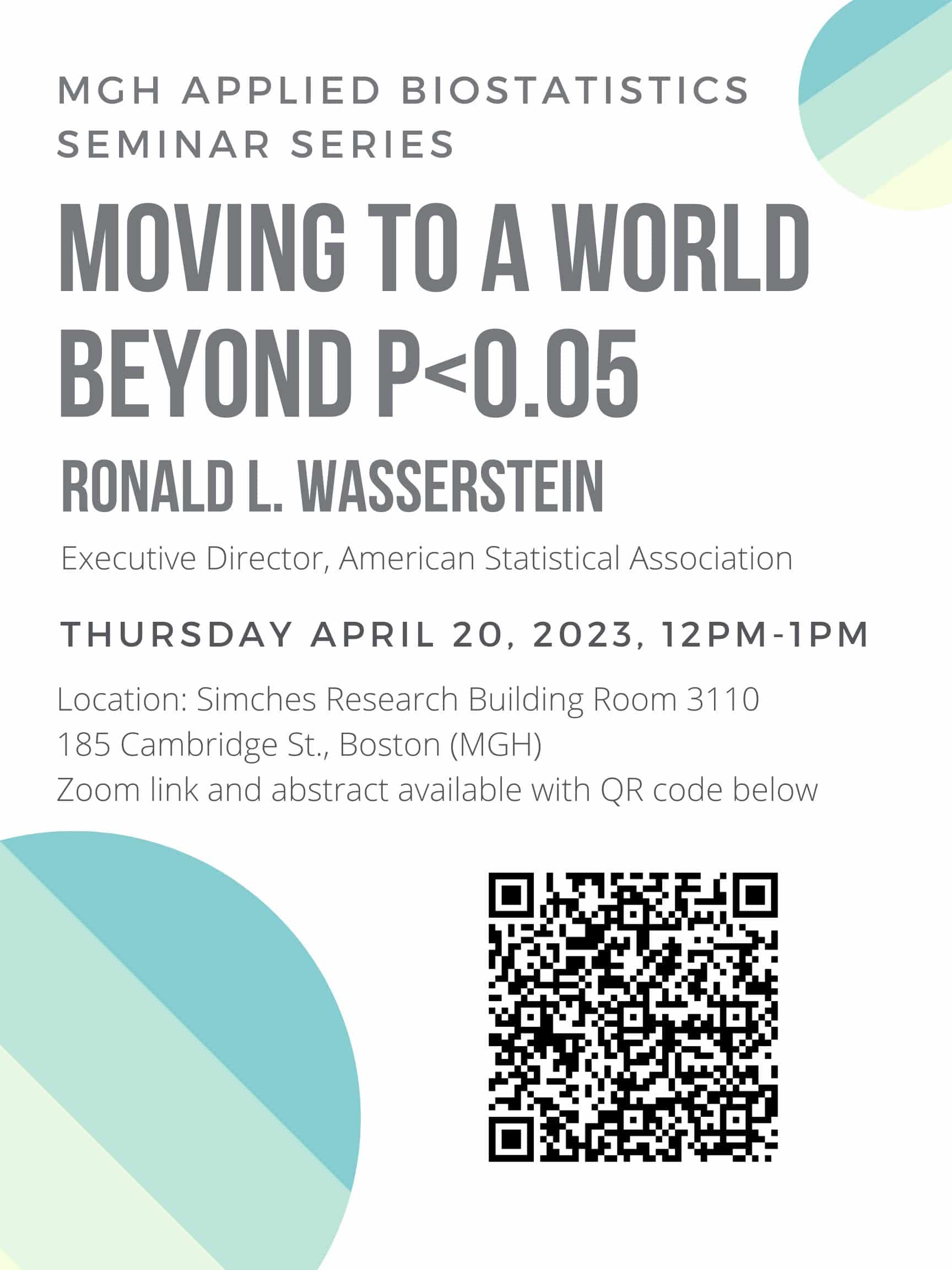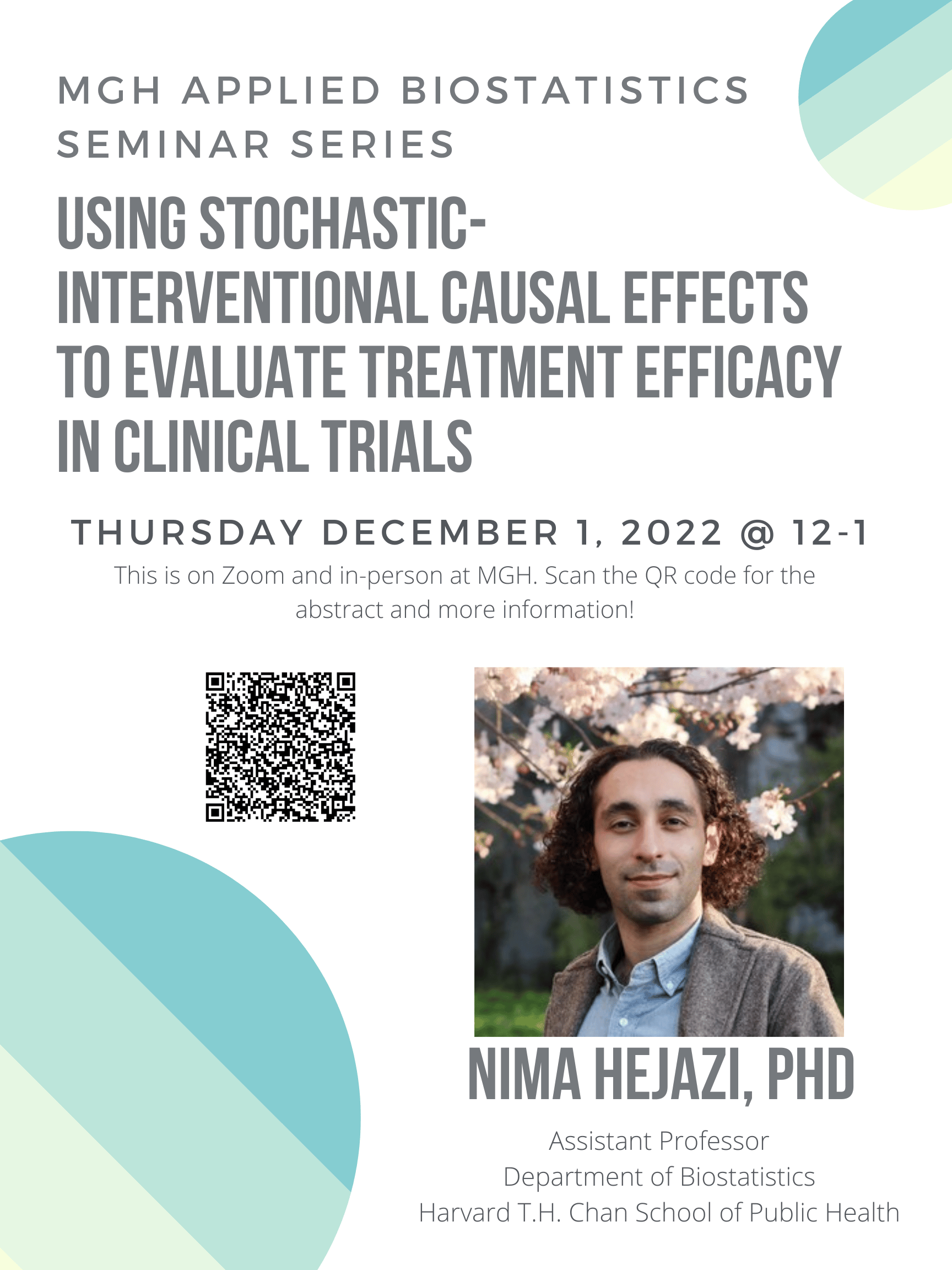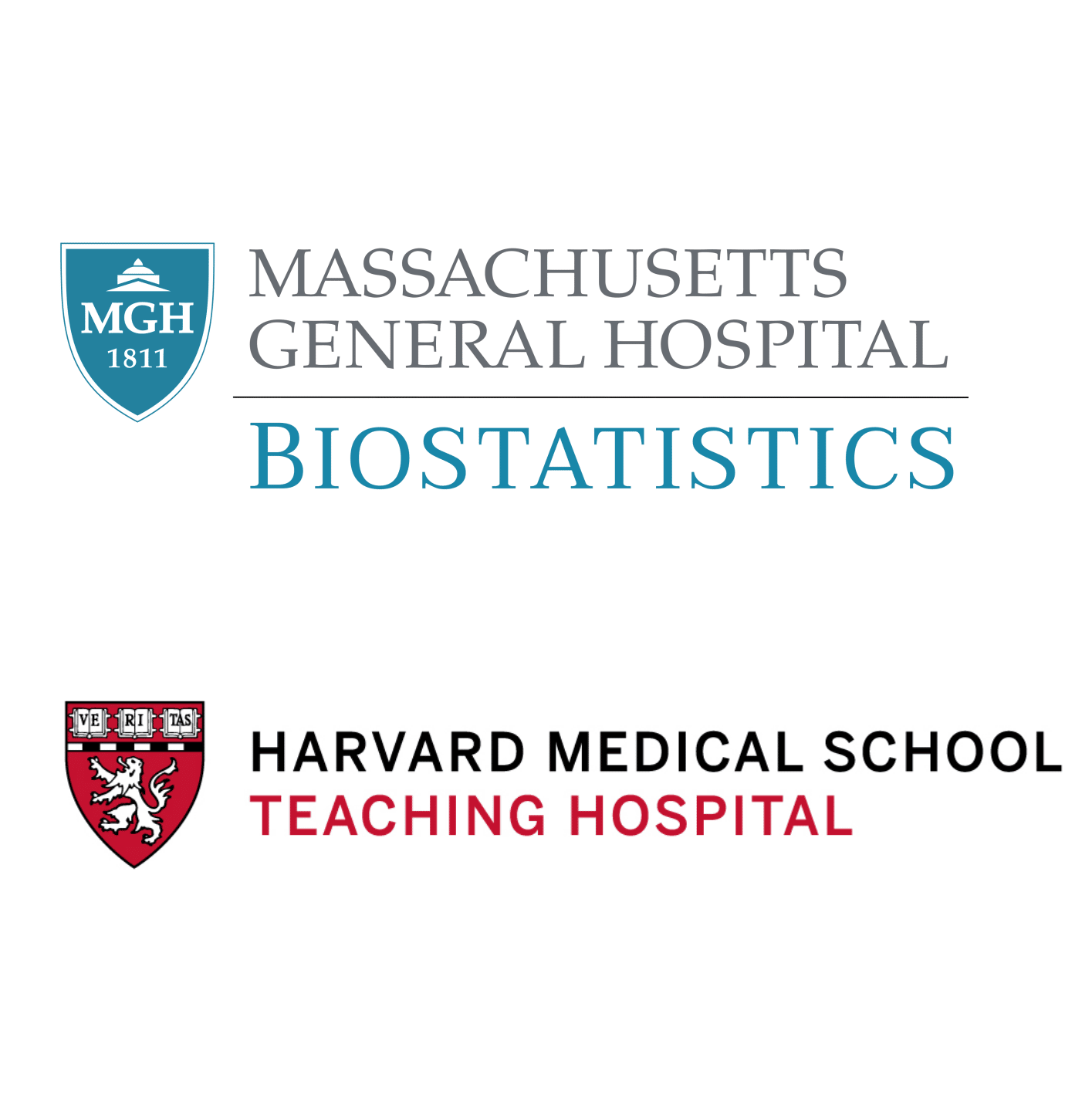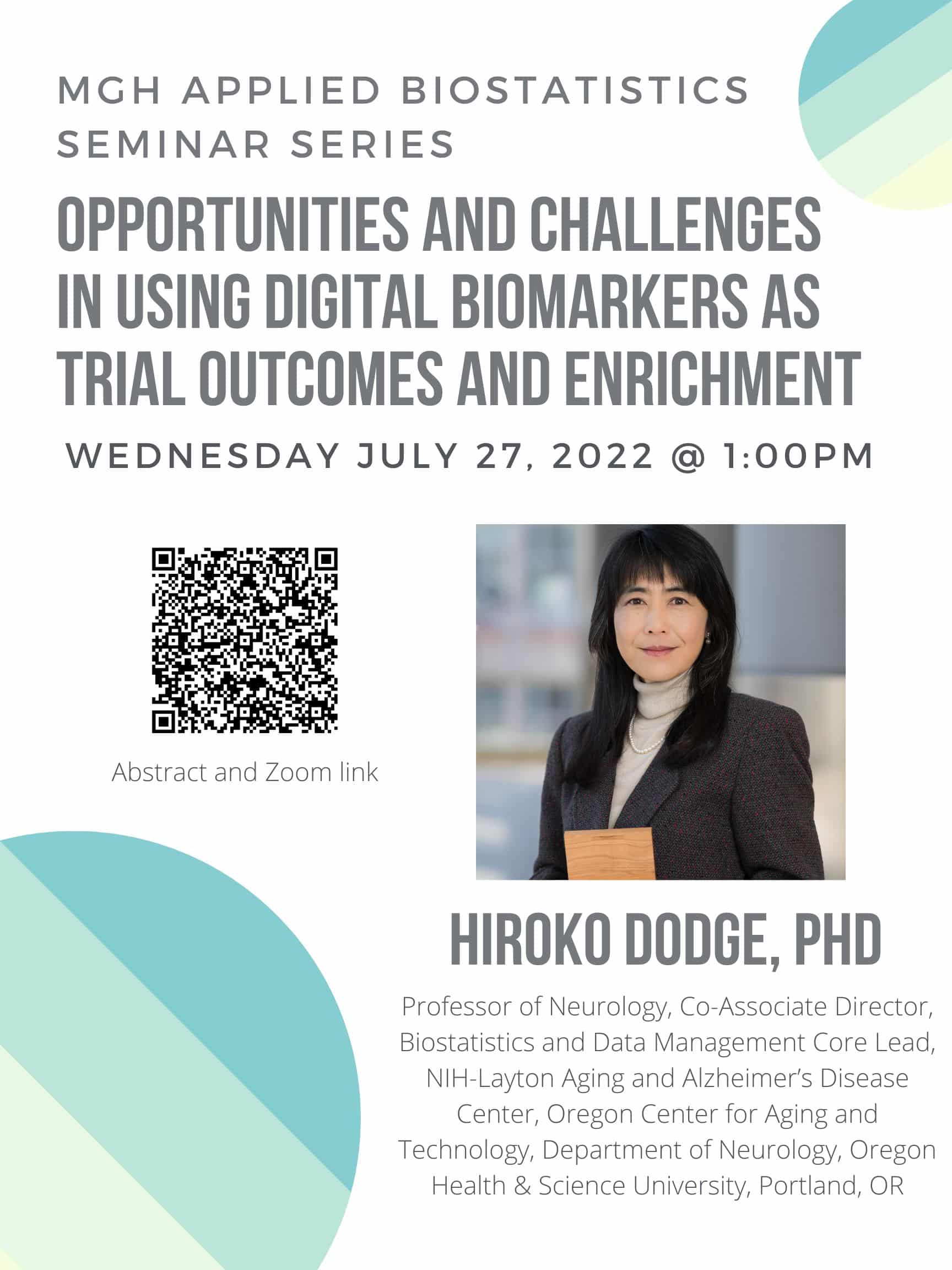Please join us for the tenth installment of the MGH Biostatistics Applied Biostatistics Seminar Series, a seminar series designed to introduce researchers to intermediate topics that are highly relevant to clinical biostatistical research. Presenters will introduce us to their area of expertise and motivate the use of these methods with concrete clinical examples.
Designing a Longitudinal Clinical Trial Based on a Composite Endpoint: Sample Size, Monitoring, and Adaptation
Thursday September 14, 2023, 12:00-1:00pm
Hybrid event: In-person, 50 Staniford St. Ste 560 Large Conference Room and on Zoom (https://partners.zoom.us/j/81785601606)
Speaker: David A. Schoenfeld, PhD, Massachusetts General Hospital
Abstract:Hierarchical composite endpoints are often used in regulatory trials but there aren’t many guidelines about how to design such trials. I focus on the design issues that these trials face. Namely how to determine the sample size of such a trial, how to use group sequential monitoring and how to develop an adaptive design. We assume that the analysis will be based on a ranking method where each endpoint is compared in an order specified by the importance of the endpoint and the first endpoint that can be compared at the minimum of the two patients follow up times is used to determine the ranking. if each patient has a different follow up time, the ranking will not be transitive and the simple Wilcoxon variance cannot be used. In addition, the probability that one treatment is better than another is often not an intuitively useful parameter for determining sample size. We. suggest simulation approaches on how to deal with these issues. Both group sequential and adaptive methods suffer from the issue that sequential looks at the data do not satisfy independent increments. We show that the usual methods need to be modified to use the correlation coefficient that relates the data of the current look with previous ones. We describe this modification and how to estimate this correlation.
Please contact tthaweethai@mgh.harvard.edu with any questions.
